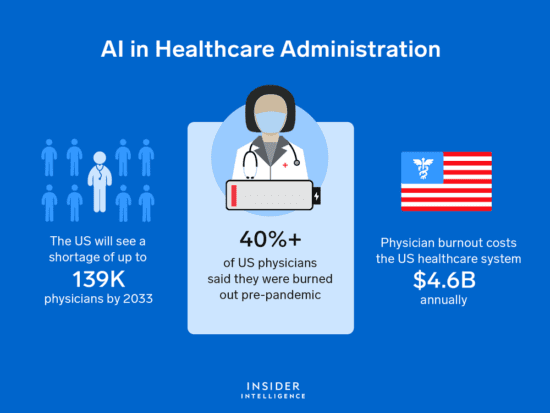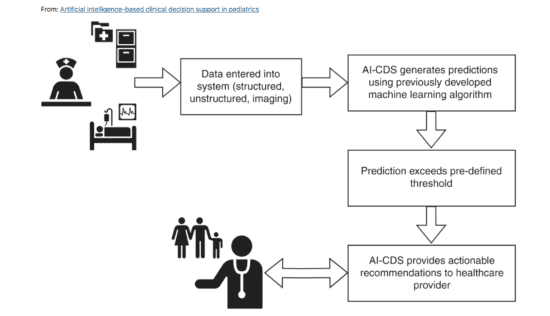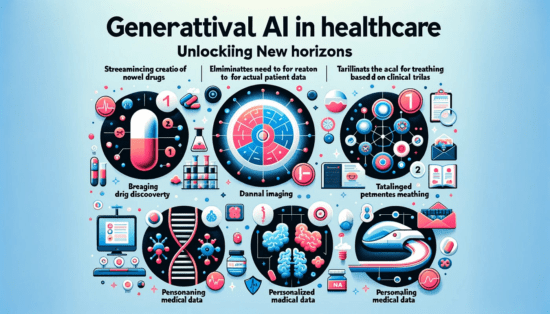Clinical Workflows IV

One of the emerging concepts in this area is that of ambient intelligence. Ambient intelligence occurs when sensors such as microphones and cameras provide data to an AI that can analyze what’s going on in the clinical situation and generate notes for encounters, place the orders, order prescriptions, make referrals and carry out other actions […]
Clinical Workflows III

In my opinion, documentation assistants will be one of the best and earliest use cases where AI will make a significant difference in the practice of medicine. Clinical documentation in the EHR is one of the biggest drivers of physician burnout in the USA, causing as much as $90–140 billion in lost physician time […]
Clinical Workflows II

AI can also start to provide first-line support to patients in the form of bots using voice or text. This would be helpful to patients but also free up the care team to focus on more important activities and lighten their heavy load. Emerging applications for passively collecting data from patients, analyzing it for insights […]
Clinical Workflows I

Practicing medicine is complicated and involves many activities. This is because human body is complex and there are many moving parts. On top of it, there are many activities that need to be done around taking care of patients. These include record-keeping, submitting charge codes to get paid, writing letters to justify doing procedures, and […]
Generative AI in Healthcare Administration and Operations

It’s estimated that about 25% of this $4 trillion is due to administration, which means that we spend $1 trillion a year on paperwork. It’s no wonder that healthcare is now the number one employer, passing retail as of 2017 with 17 million jobs. A typical medical clinic or health system has to deal with […]
Generative AI and Clinical Decision Support

In a conversation with Kang Zhang, MD, one of the pioneers in the applications of healthcare AI, he mentioned to me about the amazing potential of generative AI to be a game changers in healthcare. Dr. Zhang has done some of the most pioneering studies in this space and has been face to face with […]
Generative AI in Medical Affairs and Commercial Groups

As with clinical trials, regulatory submissions, pharmacovigilance, communicating with providers and patients, and monitoring social media for adverse events of drugs involves a large amount of information in the form of narratives. Large language models represent a quantum leap in the capabilities of NLP in analyzing and understanding unstructured information. This means good news for […]
Generative AI in Clinical Trials

Once you find a promising drug or device, you need to take it through trials. This is another long and complicated process. We need to make sure that these products are safe and effective before they’re prescribed to large numbers of people. So many things about this process are difficult: deciding which patient population would […]
Generative AI in Drug Discovery

I view the applications of AI in unlocking key insights about what goes on in our bodies, what causes diseases, and discovering or designing new treatments one of the most promising areas for AI to make an impact in healthcare. There is so much data to analyze to figure out what is really going on […]
Will Generative AI solve the slow adoption of AI in healthcare?

When ChatGPT impressed everyone with its ability to understand plain English questions and appropriately respond, it marked a new milestone in the development of artificial intelligence tools that can actually improve our lives. The idea of an on-demand advisor that can sit on top of all of the knowledge in human history to date and […]

